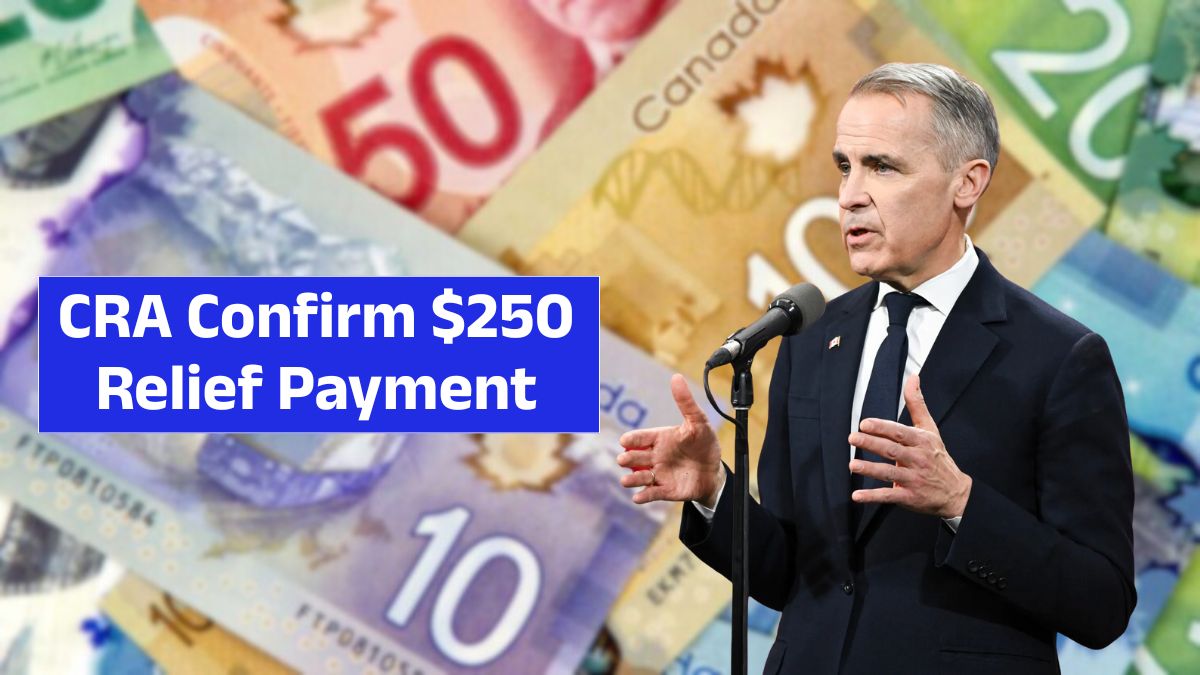In August 2025the Canada Revenue Agency (CRA) will automatically issue a one-time, tax-free $250 relief payment to eligible Canadians. Designed as direct cost-of-living support, the payment requires no application, relying instead on tax records and verified CRA account details.
With inflation continuing to affect everyday essentials, this modest but timely payment offers short-term relief for millions of households. Here’s a detailed breakdown of eligibility, payment timelines, and steps you can take to ensure the money arrives without delays.
What Is the CRA $250 Relief Payment?
The $250 payment is part of Canada’s broader affordability measures for 2025. It is:
- A one-time, tax-free relief boost credited directly to eligible recipients.
- Issued in August 2025 without requiring any new application.
- Calculated using information from 2024 tax filings and CRA account records.
- Targeted at individuals and families earning within set income thresholds.
Unlike other benefit programs, this relief payment is automatic—once eligibility is confirmed, the CRA processes it directly.
Eligibility Criteria
The CRA determines eligibility using tax data and residency records. To qualify for the $250 relief:
- Income Threshold: Generally aimed at individuals with annual incomes under $45,000–$65,000.
- Tax Filing: Must have filed and had your 2024 tax return assessed.
- Residency: Must be a Canadian resident in August 2025.
- CRA Profile: Banking and mailing details must be complete and current.
Groups expected to benefit include seniors, low-income workers, students, single parents, and persons with disabilities.
Payment Timeline & Delivery Methods
Payments will roll out through direct deposit or cheque, depending on your CRA profile settings:
| Payment Method | Delivery Window | Notes |
|---|---|---|
| Direct Deposit | August 15–31, 2025 | Fastest and most secure; funds typically clear within 5 business days |
| Cheque | After August 31, 2025 | May take 10–15 business days, depending on Canada Post delivery |
To avoid cheque delays, Canadians are strongly encouraged to set up direct deposit via their CRA My Account.
No Application Needed
One of the biggest advantages of this program is zero paperwork. Eligible recipients do not need to apply—payments are processed automatically if:
- Your 2024 tax return has been filed.
- Your income is within the threshold.
- Your CRA account is up to date with direct deposit or mailing information.
Eligibility and payment status can be checked anytime under the “Benefits and Credits” section of your CRA My Account.
Who Might Be Ineligible?
Not all Canadians will receive this relief. You may be excluded if:
- You did not file or finalize your 2024 tax return.
- Your income exceeds the eligible threshold.
- Your CRA account details (banking or address) are outdated.
- Your account has unresolved tax discrepancies or flagged issues.
To confirm your status, log in to CRA My Account or contact the CRA directly.
Why the Relief Matters in 2025
While $250 may seem modest, it represents critical relief for households under financial strain. The payment can help cover:
- Groceries for families stretched by food inflation.
- Utility bills during a period of rising energy costs.
- Rent or transportation costs, particularly for low-income workers and seniors.
By arriving automatically, this payment ensures that no one misses out due to complex applications or bureaucratic delays.
FAQs – CRA $250 Relief Payment August 2025
Q1: Do I need to apply for the $250 CRA relief payment?
No. The payment is automatic if you meet eligibility criteria. Filing your 2024 tax return is the only requirement.
Q2: When will I receive the payment?
Direct deposits are expected between August 15–31, 2025. Cheques will arrive after August 31.
Q3: What if I haven’t received it by the end of August?
Check your CRA My Account for payment status. If still missing after the payment window, contact CRA to investigate.
Q4: Will this payment affect my other benefits?
No. The $250 relief is tax-free and does not reduce eligibility for programs like CCB, GIS, CPP, or OAS.
Q5: Who is most likely to miss out?
Those who fail to file 2024 taxes, earn above the income cap, or have outdated direct deposit/mailing details in their CRA account.






